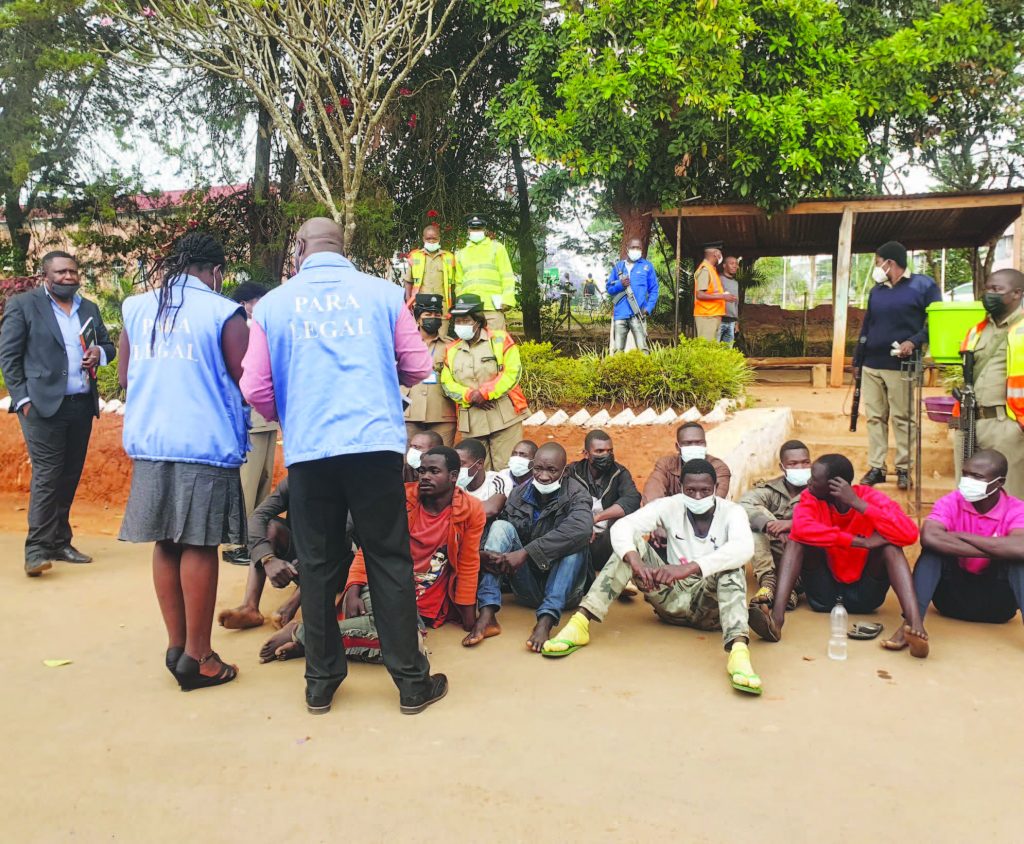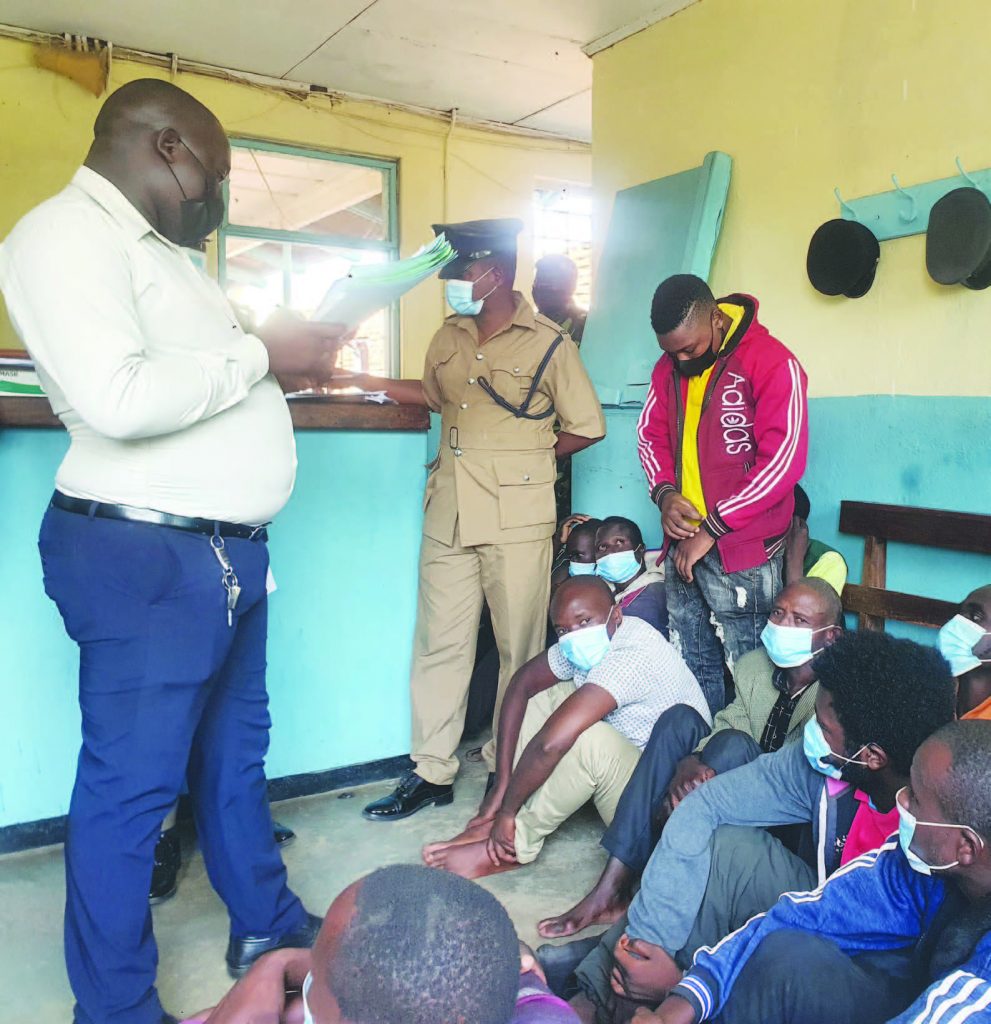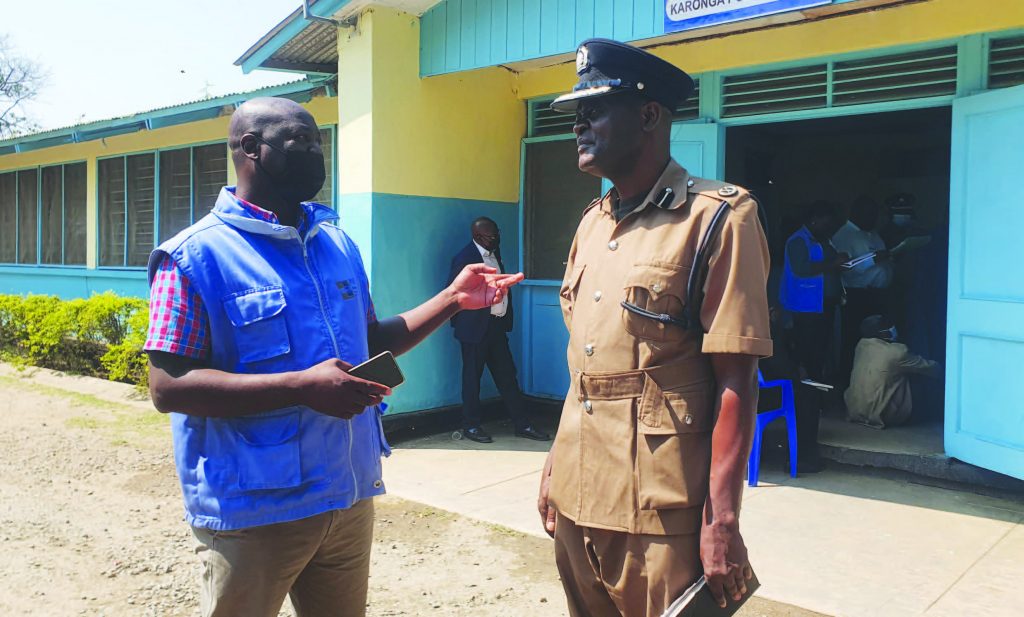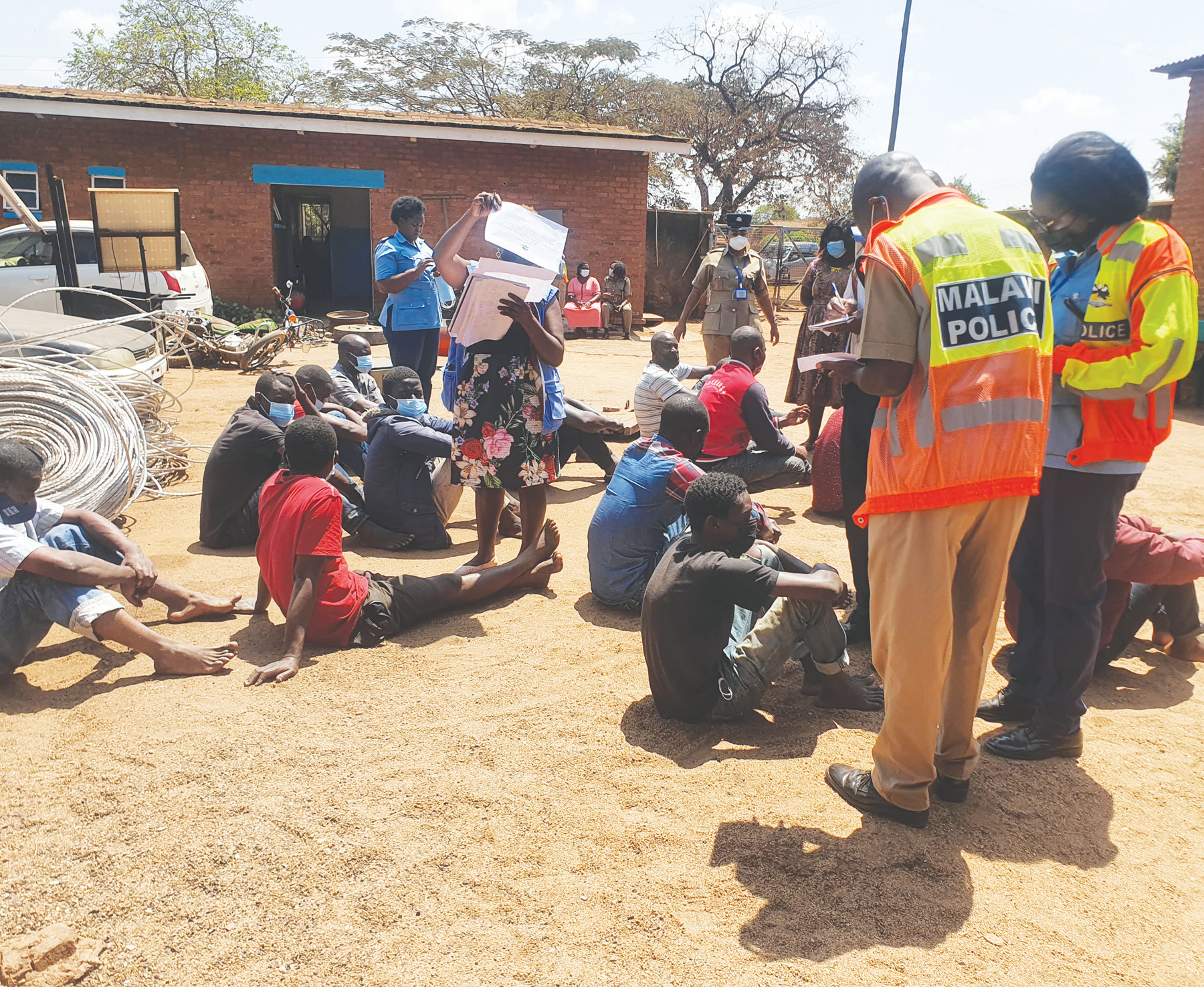Paralegals easing life for suspects, remandees
For owing K4 500, Yamikani Kachingwe from Nsungwi area in Lilongwe’s Area 25C could have been part of the country’s high prison population currently hovering around 13 500.
A businessperson who fries chips (chiwaya) within the township, Kachingwe landed in police custody when a phone sale deal went awry.

His friend had a phone without a battery, so Kachingwe gave him one, and together they would sell it for K6 500 and share the funds.
“I was supposed to give him K4 500 and get the balance. For two days after the sale, he never showed up to claim the money, so I used it for my business,” Kachingwe explained.
When the friend finally came, Kachingwe explained the situation, asking him for some time to raise the money. But upset, the friend reported him to Nsungwi Police Unit.
After a few days in police custody, Kachingwe was released on bail following a screening exercise by paralegals and a magistrate under the ongoing Chilungamo—Access to Justice through Village Mediation and Paralegal Services project. Now he is raising the funds to repay his friend.

In Nkhata Bay, Peter Chembezi from Liwomba Two Village, Traditional Authority (T/A) Mankhambira was arrested after buying stolen steel.
“The steel was allegedly stolen from China Civils which has a project in the district, and I was in custody for 12 days. We went to court several times, but my case was never heard,” explained Chembezi.
Conversely, his bail came owing to a Camp Court—an initiative where courts sit in prisons as a way of delivering justice quickly to suspects who have overstayed on remand.
Paralegal Advisory Service Institute (Pasi) national director Clifford Msiska observed that prison overcrowding has been a problem for many years in the country.
They are working with the paralegals and village mediators to reduce congestion in police and prison formations under the ongoing Chilungamo—Access to Justice through Village Mediation and Paralegal Services project, which is promoting access to justice for many vulnerable people who; otherwise, cannot afford to hire lawyers.

The paralegals provide services in courts, prisons and police, giving first legal aid to ordinary people on the frontline of the criminal justice system.
They also provide legal information about the law and procedures leading to elimination of unnecessary detention of suspects as well as speed up processing of cases for vulnerable people to reduce congestion in prisons.
High Court Judge Mzondi Mvula could not emphasise more the importance of paralegals in promoting access to justice, being the first point of call for many remandees.

“According to the law, if remanded in custody atfter arrest, until 48 hours expiry, one must be taken to court to be tried or told why they are arrested. Then the matter goes through the formal justice system. But because of the numbers, bureaucracy and other things, it is not always possible; and people stay longer in custody,” Mvula explained.
Nonetheless, magistrates and Pasi paralegals screen those in police holding cells to ensure that the 48-hour rule is adhered to.
Paralegals also prepare lists for camp courts—for judicial officers, court clerks and police prosecutors to screen cases deserving attention in prison formations. All these efforts are offering renewed hope for justice for remandees and their families.
“Paralegals bring justice from wherever it is, to the people in police and prison cells. They are also readily available in the communities where people face simple disputes and village mediators come in to reconcile the parties. If it fails, they take it to subordinate or magistrate’s courts; and even higher if the parties are not satisfied with the outcome, and they appeal,” he said.

On his part, Nkhata Bay Police Station’s prosecutions officer Oscar Mulungu agreed that paralegals are their watchdogs, especially in observing the 48-hour rule.
“We have few prosecutors, which results in having more people on remand. But through their inspections, they remind us of how we ought to treat the suspects,” he said.
Likewise, Malawi Prison Service assistant commissioner and officer-in-charge for Mzuzu Prison, Owen Levi hailed Pasi paralegals for helping the prison service in facilitating trials.
“At the end of the day, their efforts help inmates to access justice. While some are acquitted, others get bail, and yet others are taken to court—helping us to maintain lower levels of inmates in the cells which are higher than the official capacity in our prisons,” said Levi.
Agreeing with Levi, Nkhata Bay Prison station officer Sanderson Nyambwani noted that with the rising population, crime rate is also increasing.
The result, he said, is prison overcrowding, and Pasi is helping them not to have many people in custody.
“Nkhata Bay Prison was meant to hold 80 people, but now we have about 178. And it is not only us; all other prisons are also overpopulated, putting suspects and prison officers at risk of contracting communicable diseases,” he said.
But even in places far from formal justice systems, community paralegals, also known as village mediators, resolve disputes amicably.
Pasi national director highlighted that the village mediators, exposed to human rights training, are aware of the required phases of mediation.
“They are well equipped to help people resolve their differences through mediation,” he said.
Lackson Nkhambule from Mbondolo Village, T/A Kampingo Sibande in Enyazini, Mzimba is among many who have escaped police custody because of village mediators.
Him and his friend had a misunderstanding over a goat. When the matter went to police, they were referred to village mediators. After the mediation, he paid back for the goat, and now they live harmoniously.
The village mediators are also easing the burden off traditional leaders, by handling minor cases at community level.
Group village head Mbondolo Nkhambule said the chiefs now only handle more complex cases.
He further stated that with village mediators, matters are handled in a confidential fashion.
“At the chief’s court anyone can listen to the proceedings and this can be embarrassing. Another advantage with village mediators is that they handle the disputes for free. Community members would have to pay traditional court fees (chabwalo) for chiefs to handle their cases,” he said.
Paralegals have offered legal advice to 313 431 people in police stations, prisons and courts, who directly or indirectly broke the law. They have so far facilitated the release of 93 893 detainees from prisons, juvenile centres and police stations.
The village mediators, on the other hand, have registered 58 358 cases, 14 percent of which were domestic violence related; 24 percent marital issues and 62 percent were general cases. Out of all these registered cases, village mediators have resolved 52 681 cases and referred the rest to other relevant justice institutions.





